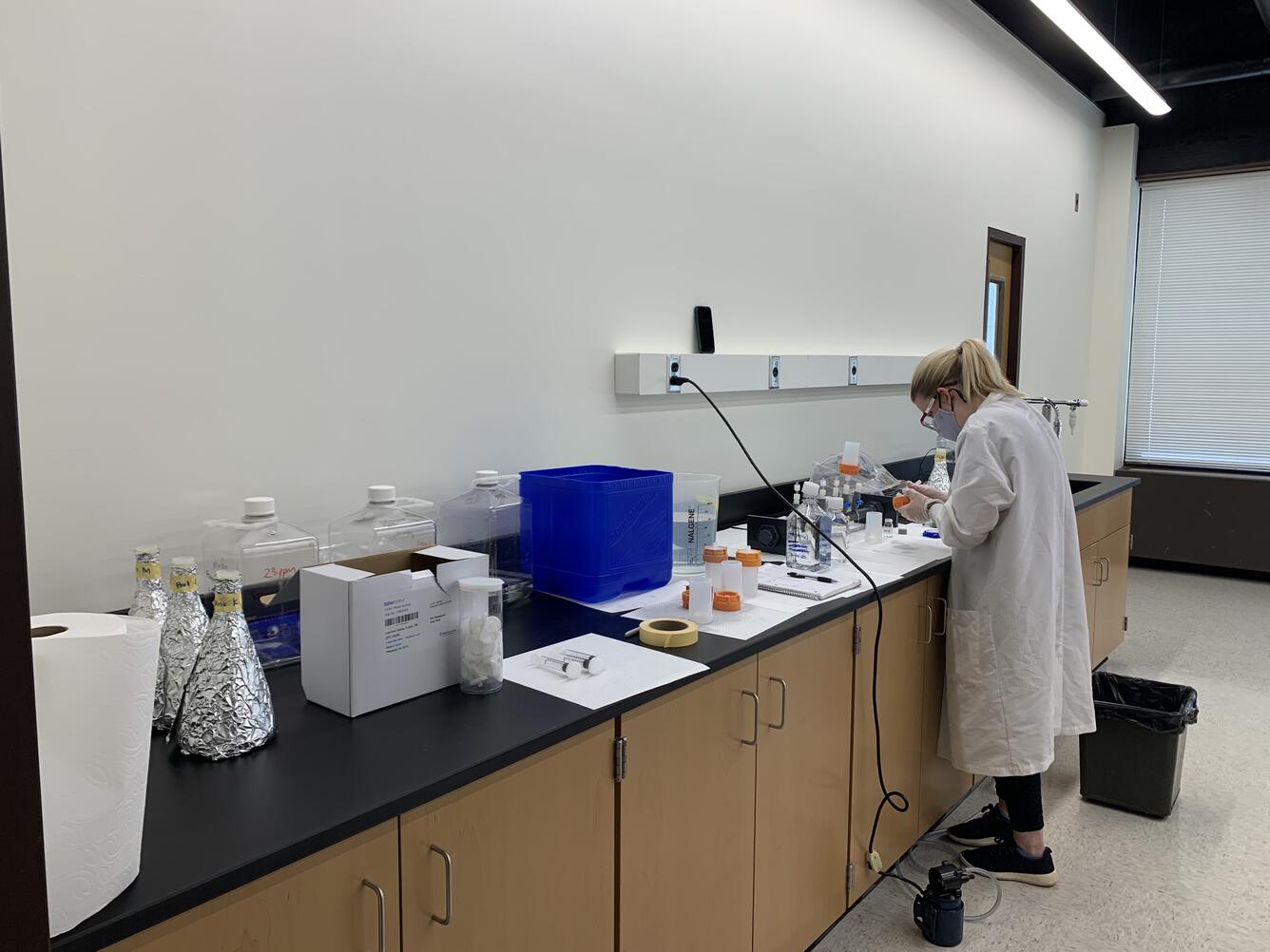New publications from the Mercury Research Laboratory and a feature on student trainee Grace Armstrong
The Mercury Research Lab has published several papers in recent months, including one authored by student trainee Grace Armstrong.
The Mercury Research Lab (MRL) at the Upper Midwest Water Science Center (UMid) has been busy and published several papers in recent months.
A special congratulations to student trainee Grace Armstrong for getting her first lead author publication which examined photochemical degradation of Hg in freshwater systems. Grace Armstrong is currently a Pathways Intern working with the USGS Mercury Research Lab (MRL) located in the Upper Midwest Water Science Center in Madison, WI. In May 2024, she will be converting to full-time Chemist, following graduating with her PhD in Environmental Chemistry and Technology from the University of Wisconsin-Madison.
Grace has been working with the MRL since 2019 (Pathways since January 2023) on her doctoral research regarding mercury cycling in freshwater food webs. Her overall research pairs lab experiments and field assessments to investigate how mercury isotopic “fingerprints” are transformed in aquatic environments web due to processes like plankton uptake, photodegradation, and bioaccumulation. Her first publication focuses on outdoor photochemistry experiments examining mercury transformations due to plankton uptake and photodemethylation in the presence of phytoplankton and natural dissolved organic matter from diverse freshwater environments. Stay tuned for her ongoing projects relating to mercury transformations in Wisconsin eutrophic lakes and the spatial variations of mercury concentrations in sediments, waters, and biota from Lake Huron.
In her free time, Grace enjoys climbing (bouldering), cooking, and spending time outside with her dog, Benny. She is looking forward to converting to full-time this Spring and continuing her work on mercury as well as expanding into the field of microplastics and other aquatic contaminants.
Other recent publications from the Mercury Research Team include mercury sources and budget for the Snake River and the impact of a reservoir on fish mercury concentrations.




